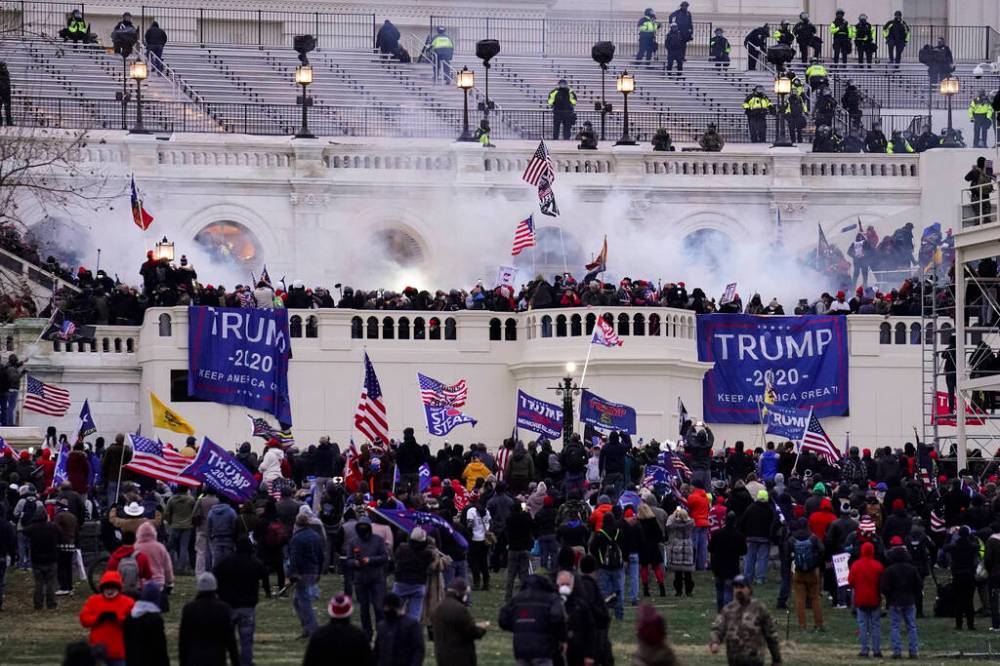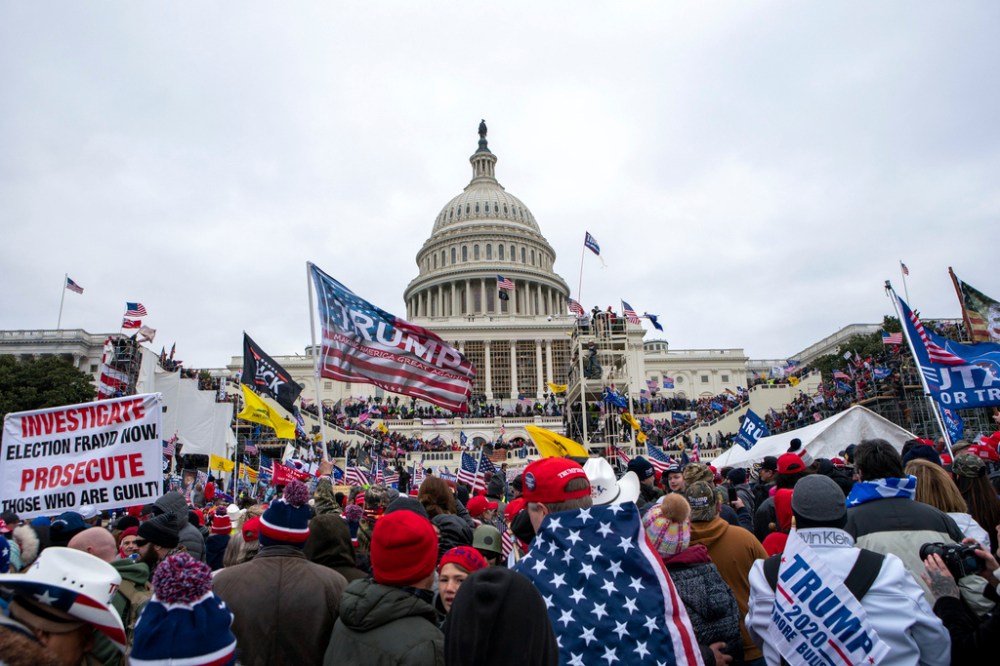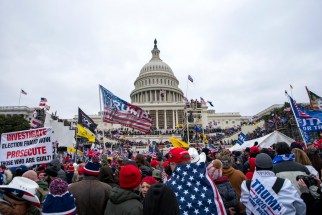Jan. 6 hearings unlikely to change many minds
Read this article for free:
or
Already have an account? Log in here »
To continue reading, please subscribe:
Monthly Digital Subscription
$19 $0 for the first 4 weeks*
- Enjoy unlimited reading on winnipegfreepress.com
- Read the E-Edition, our digital replica newspaper
- Access News Break, our award-winning app
- Play interactive puzzles
*No charge for four weeks then billed as $19 plus GST every four weeks. Offer only available to new and qualified returning subscribers. Cancel any time.
Read unlimited articles for free today:
or
Already have an account? Log in here »
Hey there, time traveller!
This article was published 08/06/2022 (931 days ago), so information in it may no longer be current.
In the late spring and summer of 1973, Americans (and many Canadians) were transfixed by a live “event” television broadcast the likes of which had never been seen. Most viewers did not fully understand the nature of the programming, but by the time the extensive “gavel to gavel” coverage concluded six months later, the Senate Watergate Committee’s hearings had become must-see TV in a way that shook the United States to its very core.
In the era before the cable-TV explosion, long before the launch of 24-hour news networks and the much-later advent of streaming services and social media created a fragmented, polarized and distinctly bunkered audience, mainstream network television was the conduit by which an information-hungry population accessed the goings-on at the Watergate hearings.

The three main U.S. networks — ABC, CBS and NBC — rotated live coverage of the proceedings, while America’s public broadcaster, PBS, went all-in by carrying every in-session minute. Syndicated newspaper columnist Jack Anderson observed that “the Senate Watergate investigation is proving a television-viewing phenomenon,” and A.C. Nielsen’s TV-viewing measurement showed fully 75 per cent of American homes tuned in to at least some part of the hearings.
What was revealed about a previously much-ignored 1972 break-in and attempted bugging at the Democratic Party headquarters would ultimately be the undoing of Richard M. Nixon’s presidency. Former White House counsel John Dean’s testimony about a White House coverup of the Watergate break-in and “a cancer growing on the presidency” was a body blow to the Nixon administration, and the subsequent revelation by a former White House aide that Mr. Nixon had been secretly recording Oval Office conversations set in motion the events that forced his resignation.
The Watergate hearings, and TV coverage thereof, literally changed the course of U.S. history.
The issues at stake in the public hearings of the House Select Committee to Investigate the Jan. 6 Attack on the United States Capitol, which begin today and continue next week, are arguably more grave and potentially damaging to U.S. democracy than was the Watergate scandal. But to expect them to produce an air-clearing and accountability on the level that was achieved in 1973 would be to invite deep disappointment.

Times have changed. The media landscape has changed. Politics has changed. And America has been transformed, and not in the “great again” direction envisaged by those of a Republican bent who methodically endeavour to thwart the Jan. 6 committee’s efforts at every turn.
The hearings will be highly revelatory — making public the findings of an investigation that has included more than 1,000 interviews and the examination of in excess of 100,000 documents — but the likelihood they will change many American minds with regard to the Jan. 6, 2021 attack and former president Donald Trump’s role in fomenting the insurrection is rather slim indeed.
“The hearings will tell a story … of the most heinous and dastardly political offence ever organized by a president and his followers and his entourage in the history of the United States.” – Democratic Rep. Jamie Raskin of Maryland
“The hearings will tell a story … of the most heinous and dastardly political offence ever organized by a president and his followers and his entourage in the history of the United States,” said Democratic Rep. Jamie Raskin of Maryland. Predictably, Republican Rep. Jim Jordan of Ohio disagreed, accusing the Jan. 6 committee of “altering evidence and lying to the American people about it … and their goal is to stop President Trump from running in 2024.”
The lines are drawn, in indelible ink. The hearings will be held in prime time and carried live on major U.S. broadcast networks and almost all cable-news outlets. Fox News, the informational echo-chamber refuge of most Trump-supporting Republicans, has opted not to carry the hearings.










